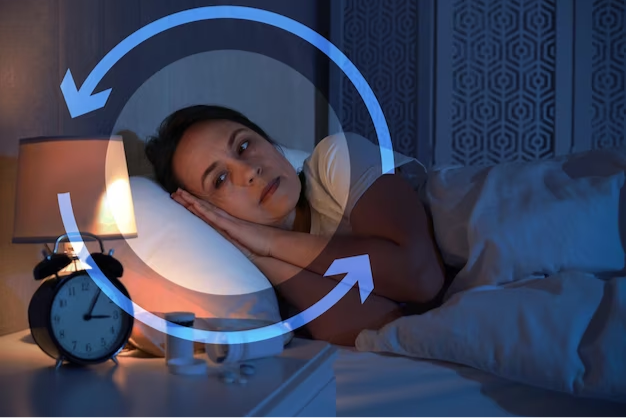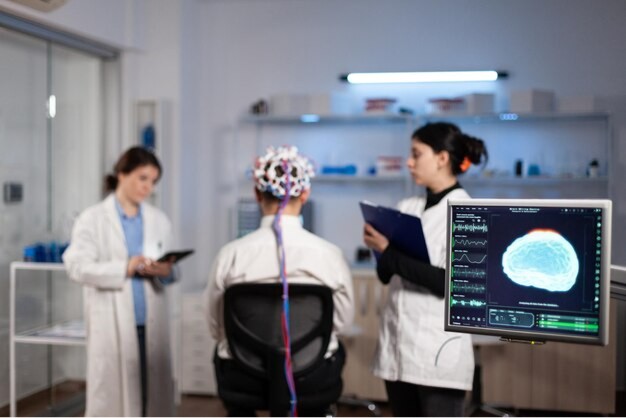Introduction
Sleep is often referred to as the body's natural reset button, and for good reason. While we slumber, our bodies engage in a complex process of restoration and repair. One of the most critical beneficiaries of this nightly rejuvenation is our brain. In this article, we will delve into the fascinating and intricate connection between sleep and brain health, exploring the crucial roles sleep plays in cognitive function, emotional well-being, and overall mental health.
The Science of Sleep
Before we explore the relationship between sleep and brain health, let's briefly discuss the different stages of sleep. Sleep is divided into two main categories: rapid eye movement (REM) and non-rapid eye movement (NREM) sleep. Each stage serves distinct functions in supporting overall health, with REM sleep often associated with dreaming and memory consolidation.
NREM Sleep:During NREM sleep, the brain engages in activities like tissue repair, growth, and the consolidation of declarative memories. This is a critical phase for physical recovery.
REM Sleep: REM sleep is primarily associated with processing emotions, retaining emotional memories, and facilitating creativity and problem-solving.
The Impact of Sleep on Brain Health
- Memory and Learning: Sleep plays a fundamental role in memory consolidation. During NREM and REM sleep, the brain processes and stores information acquired during the day, making it available for future recall and problem-solving.
- Emotional Regulation: Sleep is essential for emotional well-being and mental health. Adequate sleep helps regulate mood and emotional responses, while sleep deprivation can lead to irritability, anxiety, and depression.
- Creativity and Problem-Solving:REM sleep, often called "dream sleep," is crucial for stimulating creativity and facilitating complex problem-solving. It helps the brain make novel connections and see new perspectives.
- Brain Detoxification: Recent research has revealed that during sleep, the brain's glymphatic system becomes more active, allowing cerebrospinal fluid to flush out waste products and toxins, potentially reducing the risk of neurodegenerative diseases.
- Cognitive Function:Sleep is essential for optimal cognitive function, including attention, decision-making, and reaction time. Sleep-deprived individuals often experience deficits in these areas.
Sleep and Brain Disorders
The connection between sleep and brain health becomes even more apparent when considering brain disorders. Chronic sleep disturbances are associated with an increased risk of neurological conditions such as Alzheimer's disease, Parkinson's disease, and stroke. Conversely, treating sleep disorders can sometimes alleviate symptoms or slow the progression of these conditions.
Practical Tips for Improving Sleep and Brain Health
- Consistent Schedule:Maintain a regular sleep schedule by going to bed and waking up at the same times each day, even on weekends.
- Create a Comfortable Sleep Environment: Ensure your sleep space is conducive to rest, with a comfortable mattress, low light, and a cool room temperature.
- Limit Screen Time: The blue light emitted from screens can disrupt the production of melatonin, a sleep-inducing hormone. Try to avoid screens at least an hour before bedtime.
- Caffeine and Alcohol: Limit caffeine and alcohol intake, particularly in the hours leading up to bedtime, as they can interfere with sleep.
- Relaxation Techniques: Practice relaxation techniques such as deep breathing, meditation, or progressive muscle relaxation to ease into a restful sleep.
Conclusion
Sleep is a cornerstone of brain health and overall well-being. The intricate relationship between sleep and the brain is a testament to the essential role of rest in cognitive function, emotional regulation, and mental health. By recognizing the importance of quality sleep and implementing good sleep hygiene practices, we can promote brain health, enhance our cognitive abilities, and enjoy a more fulfilling and balanced life. Remember, the path to a healthier mind often begins with a good night's sleep.
.pdf%20300X60%20PX-02-02.svg)



